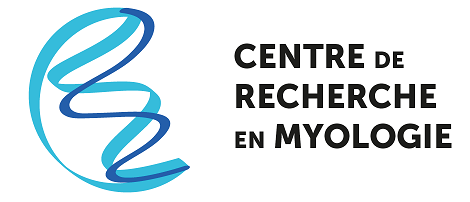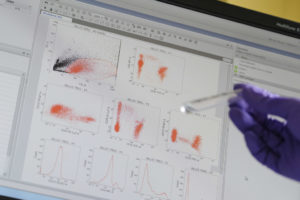You have just been awarded an ANR Young Researchers (JCJC) grant, can you tell us about this program?
The funding for an ANR JCJC project is targeted to young researchers who obtained their thesis less than 10 years ago. Its aim is to provide financial support so that young researchers can development their first independent research program. With this funding, young researchers can gain autonomy in their research by recruiting staff and acquiring the necessary equipment to successfully carry out their research project.
What research project did you present?
The main objective of my research project is to analyze the role of the motor unit and in particular the communication between motor neurons (MN) and muscle via the neuromuscular junctions in muscle dysfunction of patients with type 1 myotonic dystrophy (DM1).
DM1(myotonic dystrophy type 1) is an RNA gain of function neuromuscular disease due to the abnormal expansion of the CTG triplet in the 3’UTR of the DMPK gene. Mutated RNAs aggregate in the nucleus and sequester RNA-binding proteins from the MBNL family leading to numerous abnormalities in RNA metabolism. The study of mouse and cellular models combining high-flow analyses (CLIP and RNAseq) will allow us to identify MBNL-regulated molecular targets at the MN level and to determine the consequences of MBNL depletion in MN’s on the development and function of the motor unit. This project will help to understand how the loss of MBNL function in MNs induces the muscular pathophysiology in DM1 patients.la perte de fonction de MBNL dans les MN intervient dans la physiopathologie musculaire de la DM1.
What will this distinction bring you?
I am currently working with a PhD student, Charles Frison-Roche, whom I co-supervise with Denis Furling. This ANR JCJC funding will allow me to develop a small group within the REDs team and recruit a research assistant. This is an opportunity for me to acquire new responsibilities and to evolve in my scientific career.

